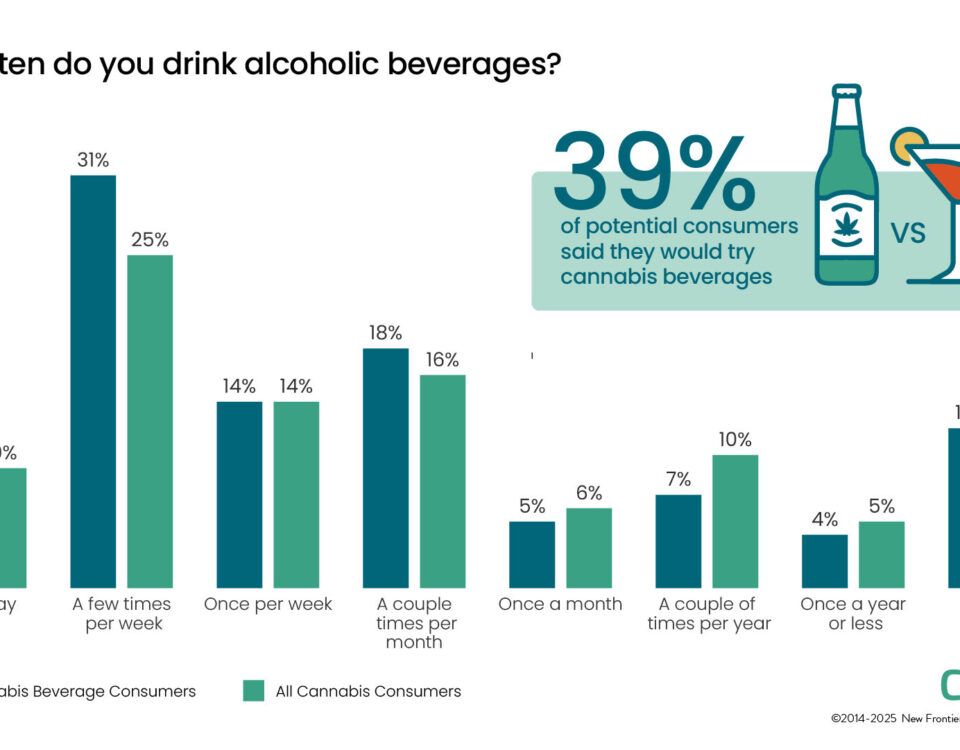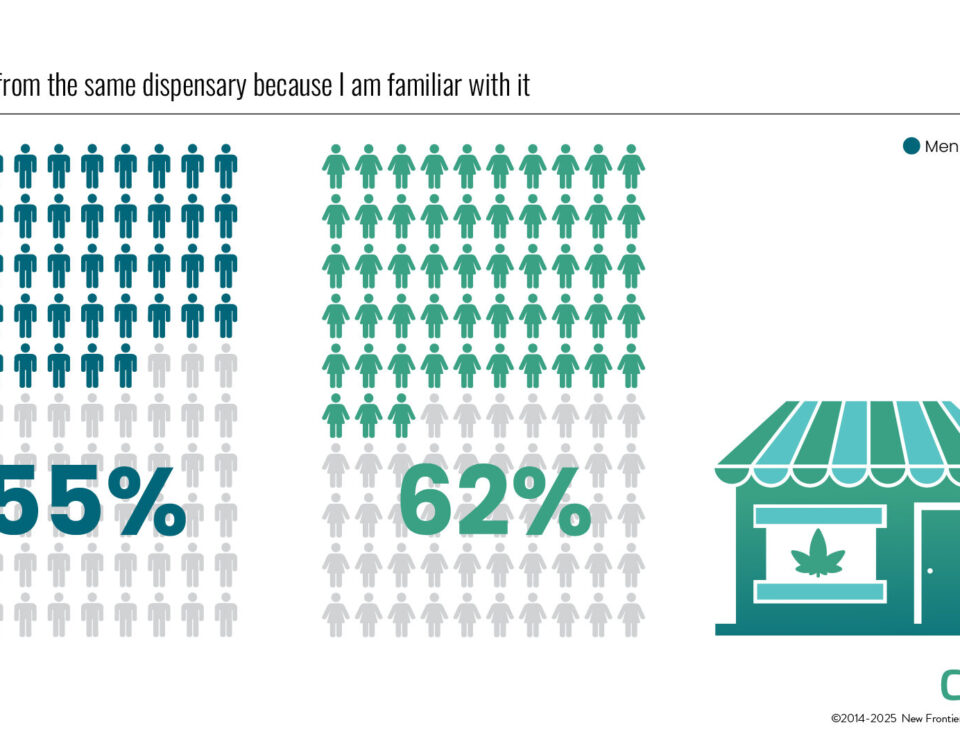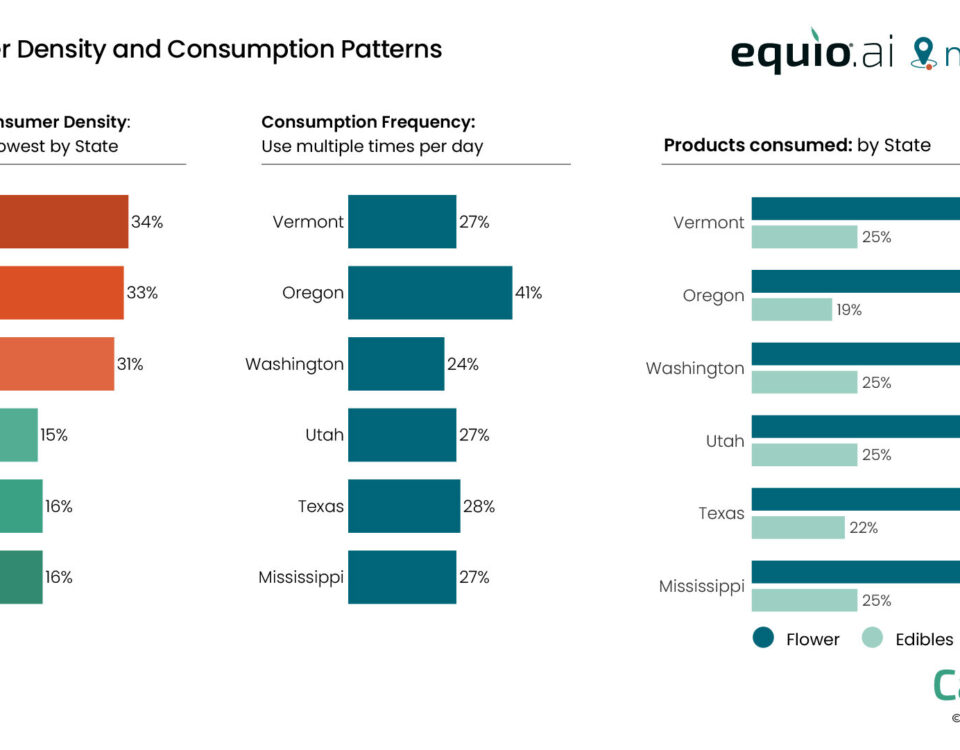European CBD Market Waits in the Balance Pending Decision Between Narcotics and Novel Food
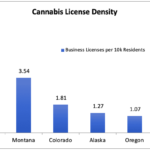
Oklahoma’s Rapid Medical Cannabis Ramp-Up
August 2, 2020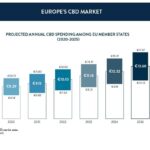
Europe’s CBD Market
August 10, 2020By New Frontier Data
Europe’s relatively young CBD market is at an inflection point, with forces poised to exert pressure in determining the shape and direction of the industry’s growth.
In mid-July, days before publication of New Frontier Data’s EU CBD Consumer Report Series: Market Size & Demand, news broke that the European Commission (EC) would suspend applications for CBD to be included in its Novel Food Catalogue, stating that CBD and other extracts from hemp flowers would be better regulated as narcotics under the United Nations (U.N.) Single Convention on Narcotics of 1961.
The “preliminary conclusion” would permit synthetic cannabinoids, but not plant-derived extracts, and thereby essentially end hopes for a legal, regulated hemp-derived CBD industry. Since the decision was not final, no definitive conclusions were to be drawn; however, should the decision stand, the implications for Europe’s CBD market cannot be overstated: The ruling would not only make it impossible for Europe’s CBD market to exist in its current form, but also constrict cannabinoid research and innovation throughout the continent.
The EC’s intentions were unclear. Given the relatively few applicants for the Novel Food Catalogue, the EC may be hoping that producers will recognize that compliance with the novel food regulations is preferable to complete prohibition. Alternately, the EC may be responding to pressure from pharmaceutical companies who see plant-derived CBD as a threat to their markets for medications and nutraceuticals. Whatever the motivations, however, the development underscores the significant influence which the U.N.’s Single Convention continues to have regarding cannabis policy, despite surging consumer demand and growing legal commercialization globally.
Given the considerable and expansive consumer demand for CBD, and that a major proportion of transactions occur online, existing CBD businesses are generally unlikely to cease operations, thereby creating a large gray market replete with existing consumers and operational structures.
The quality of the CBD bought and sold on the unregulated gray market would be of dubious and indeterminate quality, resulting in higher risks of contaminated or low-quality products, improper labeling, and unfounded marketing claims. High prevalence of substandard-quality CBD flooding the market would not only negatively impact consumer experiences, but adulterated or contaminated products contained in unregulated products may endanger public health.
The EU and its member states are unlikely to marshal the resources to aggressively enforce a blanket prohibition on the existing CBD market. Effecting a ban on such widely available products would not only be costly, but the widespread nature of the current CBD market would be a significant regulatory or policing effort, potentially diverting resources away from other enforcement priorities. Given the COVID-19 pandemic-induced economic contraction which has acutely impacted European governments, it is unlikely that the EU or its member states will invest heavily in new CBD-focused policing resources.
Due to Brexit, and the U.K.’s decoupling from the EU, CBD producers there may face a brighter future than its EU counterparts; the U.K. Food Standards Agency has stated that it will continue to consider CBD as novel foods.
The provisionary decision will face serious pushback from the industry, and may increase pressure to amend the U.N. Single Convention to remove cannabis from its prohibited classification under international law. That would have implications reaching far beyond the CBD and extracts market, potentially shaping the future of higher-THC cannabis in the bloc. In the interim, New Frontier Data anticipates intense lobbying from industry stakeholders to both national governments and officials in Brussels to try to reverse the proposed ruling.


